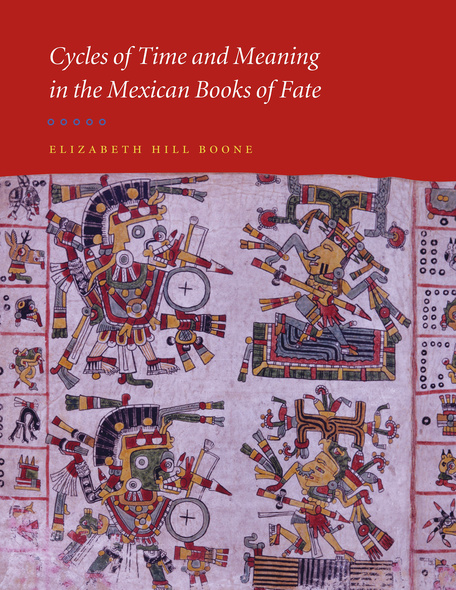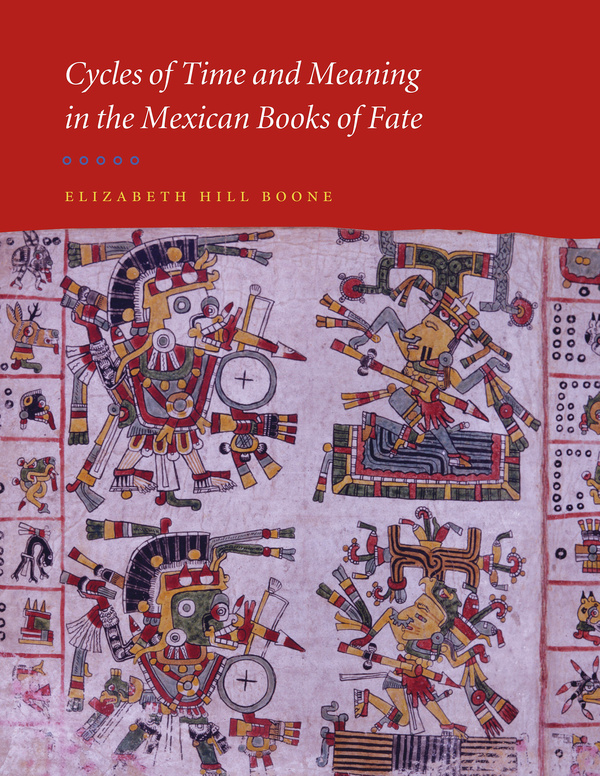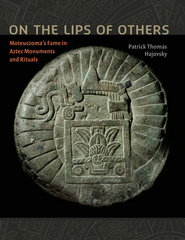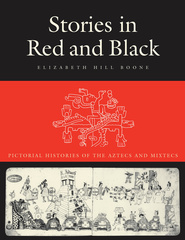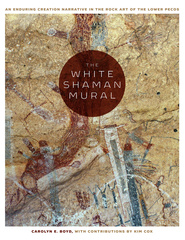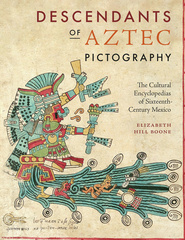Our shopping cart is currently down. To place an order, please contact our distributor, UTP Distribution, directly at utpbooks@utpress.utoronto.ca.
Cycles of Time and Meaning in the Mexican Books of Fate
In communities throughout precontact Mesoamerica, calendar priests and diviners relied on pictographic almanacs to predict the fate of newborns, to guide people in choosing marriage partners and auspicious wedding dates, to know when to plant and harvest crops, and to be successful in many of life's activities. As the Spanish colonized Mesoamerica in the sixteenth century, they made a determined effort to destroy these books, in which the Aztec and neighboring peoples recorded their understanding of the invisible world of the sacred calendar and the cosmic forces and supernaturals that adhered to time. Today, only a few of these divinatory codices survive. Visually complex, esoteric, and strikingly beautiful, painted books such as the famous Codex Borgia and Codex Borbonicus still serve as portals into the ancient Mexican calendrical systems and the cycles of time and meaning they encode.
In this comprehensive study, Elizabeth Hill Boone analyzes the entire extant corpus of Mexican divinatory codices and offers a masterful explanation of the genre as a whole. She introduces the sacred, divinatory calendar and the calendar priests and diviners who owned and used the books. Boone then explains the graphic vocabulary of the calendar and its prophetic forces and describes the organizing principles that structure the codices. She shows how they form almanacs that either offer general purpose guidance or focus topically on specific aspects of life, such as birth, marriage, agriculture and rain, travel, and the forces of the planet Venus. Boone also tackles two major areas of controversy—the great narrative passage in the Codex Borgia, which she freshly interprets as a cosmic narrative of creation, and the disputed origins of the codices, which, she argues, grew out of a single religious and divinatory system.
Elizabeth Hill Boone holds the Martha and Donald Robertson Chair in Latin American Art at Tulane University in New Orleans.
- List of Figures
- List of Color Plates
- List of Tables
- Preface
- Chapter 1. Containers of the Knowledge of the World
- Chapter 2. Time, the Ritual Calendar, and Divination
- Chapter 3. The Symbolic Vocabulary of the Almanacs
- Chapter 4. Structures of Prophetic Knowledge
- Chapter 5. The Almanacs
- Multipurpose Almanacs
- Directional Almanacs
- Topical Almanacs
- Chapter 6. Protocols for Rituals
- Chapter 7. The Cosmogony in the Codex Borgia
- Chapter 8. Provenience
- Chapter 9. A Mexican Divinatory System
- Appendix: Content Summaries
- Notes
- Bibliography
- Index

